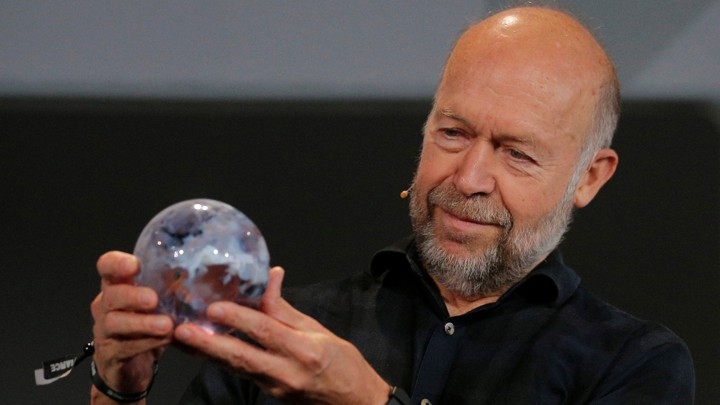https://www.theatlantic.com/science/archive/2018/08/nyt-mag-nathaniel-rich-climate-change/566525/

Having read the story, I am left to wonder: What was the point?
The article tells the tale of three men who, between 1979 and 1989, helped turn climate change into a major political issue. At the beginning of this period, few Washington officials knew much of anything about global warming. By the end, President George H.W. Bush was close to signing a United Nations treaty to address it. Rich writes with gripping, novelistic detail, and he captures the comedy and frustration of scientists struggling to shape the political sphere.
The story is bookended by a prodigious amount of material. There’s an editor’s note, tinged with echoes of The Twilight Zone: “The second part, covering the period from 1983 to 1989 … is the part readers will be likely to find most frustrating.” And there’s a prologue and an epilogue, in which Rich makes sense of his own effort. He sees this sweep of time—this first decade in which climate change was understood to be political—as tragic in the Aristotelian sense. Some small group of men glimpsed humanity’s tragic flaw—but, woe unto us, they could not convince an intransigent and ignorant public before it was too late:
In the decade that ran from 1979 to 1989, we had an excellent opportunity to solve the climate crisis. The world’s major powers came within several signatures of endorsing a binding, global framework to reduce carbon emissions—far closer than we’ve come since. During those years, the conditions for success could not have been more favorable. The obstacles we blame for our current inaction had yet to emerge. Almost nothing stood in our way — nothing except ourselves.
Ah, yes, ourselves. Now settle in, parishioners, for you know what’s coming next. This is a story about humanity, about the frailty and hubris of those tool-wielding primates who realized they could burn old rocks for energy and, in doing so, accidentally cooked the Earth.
He does so, quickly, in the prologue.
“Why didn’t we act? A common boogeyman today is the fossil-fuel industry,” he writes. But this can’t be the case: These companies did not actually oppose climate policy in the 1980s. “The coordinated efforts to bewilder the public did not begin in earnest until the end of 1989,” he claims, adding that Exxon and Shell even made “good-faith efforts to understand the scope of the crisis.”



